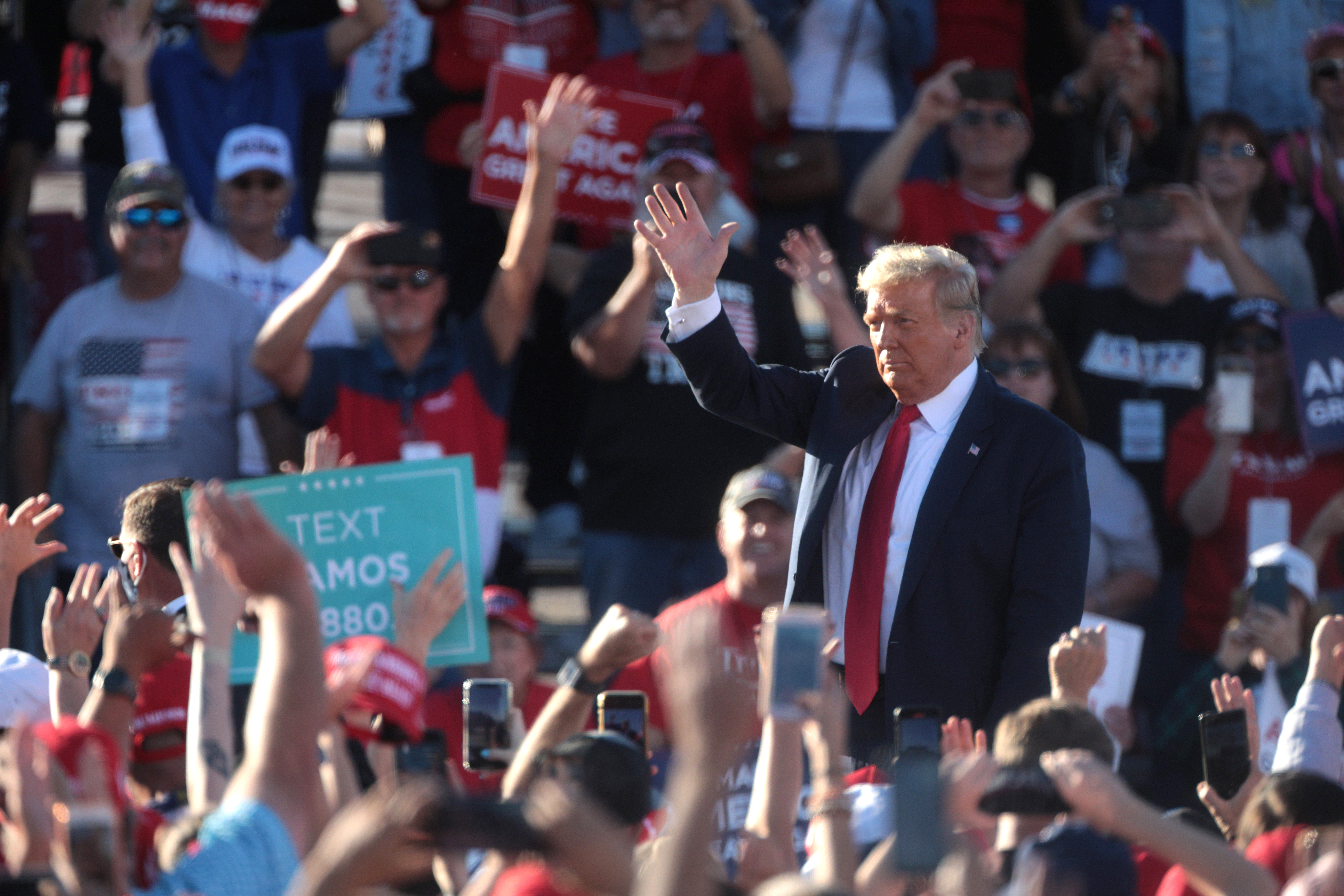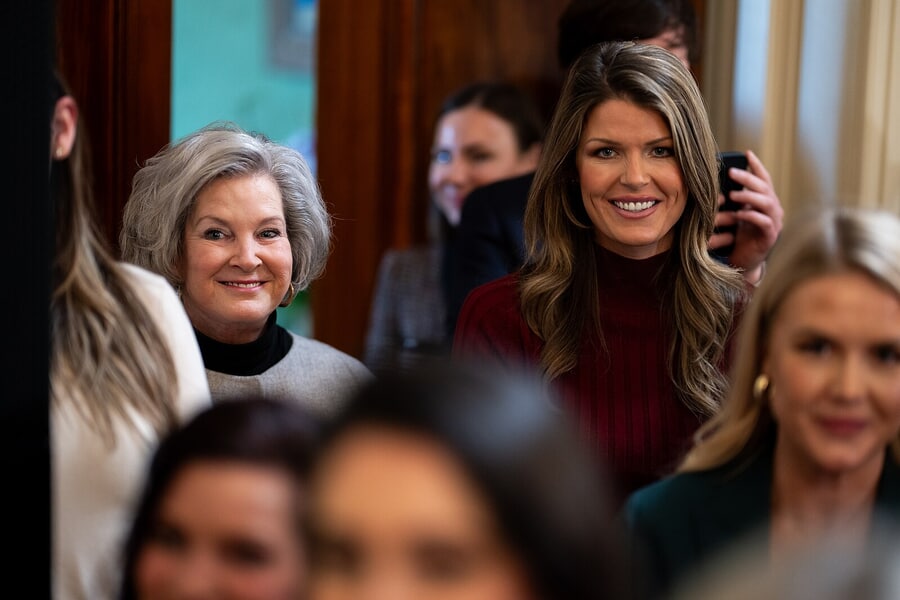The Grand Finale: Trump Tries to Block His Sentencing and Smith’s Final Report

Published by The Lawfare Institute
in Cooperation With

[This article was last updated on Jan. 17.]
In the final weeks before the inauguration, President-elect Donald Trump’s attorneys filed a flurry of petitions in multiple courts, in an effort to achieve two goals. First, he sought—unsuccessfully—to prevent his sentencing on his 34 felony convictions in the New York hush-money case. Second, he wants to block Attorney General Merrick Garland from making public any portion of Special Counsel Jack Smith’s Final Report concerning his prosecutions of Trump on four felony counts alleging election-interference in Washington, D.C., and on 32 counts of willful retention of classified documents and eight counts of obstruction of justice in the Southern District of Florida.
The Report
Litigation over Special Counsel Jack Smith’s Final Report began on Jan. 6 in federal court in the Southern District of Florida. That day, Trump’s codefendants in the classified documents case, Waltine Nauta and Carlos De Oliveira, filed an “Emergency Motion to Preclude the Government from Issuing a Purported Special Counsel Report” before Judge Aileen Cannon. Cannon had presided over the classified documents case, though she’d dismissed and closed it on July 15, 2024, finding that Attorney General Garland had lacked statutory authority to appoint Smith to that position. Her dismissal order is now on appeal before the U.S. Court of Appeals for the Eleventh Circuit. After the November election, Special Counsel Smith dropped his appeal regarding President-elect Trump, but the appeal remains pending for codefendants Waltine Nauta and Carlos De Oliveira.
In their petition on Jan. 6, Nauta and De Oliveira asked Judge Cannon to enjoin Smith from providing the report to Attorney General Garland and to enjoin Garland from making it public. They argued that because Smith was improperly appointed, his work was a nullity, and that, in any case, releasing a report on the classified document case would taint the jury and compromise their due process rights if the Eleventh Circuit should ever reinstate the case. Nauta and De Oliveira’s motion included as “Exhibit A” a letter from Trump’s attorney to Attorney General Garland, also dated Jan. 6, demanding that Smith “terminate all efforts toward the preparation and release of” the report.
The next morning, the government filed a “notice” with Judge Cannon, apprising her that the parties were still conferring; that Special Counsel would not submit the volume of its two-volume report relating to the classified documents case to Attorney General Garland before 1 p.m. that same day (Jan. 7); that Garland would not release any portion of that report—"if he does at all”—before Jan. 10 at 10 a.m.; and that the government would file a response by 7 p.m. on Jan. 7.
Shortly thereafter, Trump filed with Judge Cannon a Motion For Leave to Intervene or, in the Alternative, Participate as an Amicus Curiae, supporting his codefendants’ motion.
That same morning of Jan. 7—and perhaps reflecting concern about whether Judge Cannon had jurisdiction to rule on a matter in a case she had dismissed and that was currently on appeal—Nauta and De Oliveira filed an “Emergency Motion” in the Eleventh Circuit asking for an order granting either the same relief they were seeking before Judge Cannon, or granting a limited remand to Judge Cannon so that she could handle the motion.
Sometime before 1 p.m. on Jan. 7, Judge Cannon—without waiting to see any papers from the government—issued an order “temporarily enjoining” Garland, “the Department of Justice, Special Counsel Smith, all of their officers, agents, and employees, and all persons acting in active concert or participation with such individuals” from “releasing, sharing or transmitting” the report or any of its drafts or “information or conclusions” outside the Department of Justice. The order was to last three days—until the Eleventh Circuit had an opportunity to act—and was intended “to preserve the status quo,” “prevent irreparable harm,” and “permit an orderly and deliberative sequence of events.”
Later that day the government provided a second notice to Judge Cannon explaining that, in light of her order, it would file its response to Nauta and De Oliveira’s emergency motion before the Eleventh Circuit.
On the morning of Jan. 8, the government did file its Opposition to the Motion for an Injunction with the appellate court. It argues that there is “no need or legal basis” for an injunction. The government writes that the Attorney General, at the recommendation of the Special Counsel, intends to release publicly only Volume I of the report, dealing with the 2020 presidential election, but that, “to avoid any risk of prejudice to defendants Nauta and De Oliveira,” he will not release Volume II, concerning the documents case, “so long as defendants’ criminal proceedings remain pending.” The government also argues that the Nauta and De Oliveira have “no cognizable interest in Volume I,” nor is there any “legal basis” for “any other interested party” to block it.
A little before 5 p.m. on Jan. 8, Nauta and Oliveira filed their reply brief, arguing for a remand to Judge Cannon, maintaining that the case “does not present, as the government suggests, a ‘straightforward legal question’ appropriate for this Court court to address in the first instance.
Late on Jan. 8, Trump asked permission to file this amicus brief in the Eleventh Circuit. It asks the court to "block release of the entire Final Report" arguing, among other things, that its release would violate the Presidential Transition Act. It calls the report "another attempted political hit job which sole purpose is to disrupt the Presidential transition and undermine President Trump’s exercise of executive power." On Jan. 9, the Eleventh Circuit granted Trump’s request to file a friend-of-the-court brief.
Later that day on Jan. 9, Trump—joined by Nauta and De Oliveira—filed a “notice” with Judge Cannon, purporting to apprise her of so-called “improper” disclosures made by the Attorney General and the Justice Department. The “improper” disclosures in question were made in a public filing before the Eleventh Circuit, in which the Justice Department stated that the public release of Volume One of the special counsel’s final report would further the “public interest” because the document concerns a “significant matter.” Additionally, Trump et al. complained of similar “disclosures” made by Garland in a Jan. 8 letter to certain members of Congress. In the letter, Garland stated his belief that it would be in the public interest to make Volume Two of the report available for in camera review by Congressional leaders. Trump’s filing claims that such “disclosures” were inconsistent with Judge Cannon’s order prohibiting the Department of Justice from publicly sharing any “information or conclusions” about the final report. While the notice does not request any specific relief for the allegedly “improper” disclosures, it warns that the defendants “reserve the right to seek further relief, including a contempt finding and sanctions.” (On Jan. 10, the special counsel’s office responded with a filing indicating that “The government is in full compliance with the Court’s Order.”)
Around 8 p.m. that day, the Eleventh Circuit issued an order denying Nauta and De Oliveira’s emergency motion. The appeals court left in place Judge Cannon’s injunction against release of the report, however—thus starting the three-day clock set by Cannon until the Justice Department can release the report. The next morning, the department appealed Cannon’s injunction.
On the afternoon of Jan. 10, while the Eleventh Circuit considered the department’s appeal, Nauta and De Oliveira filed another motion before Judge Cannon seeking to extend the temporary injunction past the three-day limit. They seek a hearing in Judge Cannon’s court on whether the Justice Department may permissibly release the report. Notably, their request applies to both Volume I of the report (on Jan. 6) and Volume II; they claim that “Volume I contains information that bears on this pending criminal case.”
The next morning, on Jan. 11, the Justice Department filed an emergency motion at the Eleventh Circuit, seeking reversal of Judge Cannon’s order temporarily enjoining release of the special counsel’s final report. The motion also requests that the court consolidate the Justice Department’s pending appeals related to Judge Cannon’s dismissal of the classified documents case and her order enjoining the release of the final report, respectively.
In the district court later that afternoon, the Justice Department filed its opposition to Nauta and De Oliveira’s motion to extend Judge Cannon’s temporary injunction. The brief argues that Judge Cannon lacks jurisdiction to extend her order granting a temporary injunction and that there is no basis for a hearing on the matter. Notably, a footnote in the filing discloses that Special Counsel Jack Smith completed his work and resigned from the Justice Department on Friday, Jan. 10.
Shortly after the government filed that motion, Judge Cannon issued a paperless order demanding that the government file additional information before 10 a.m. the next morning, Jan. 11. While recognizing that the government had already stated that Volume 1 of the Final Report, relating to the election-interference case in Washington, did not “mention Nauta and De Oliveira or their conduct,” she ordered the government to indicate whether, “understood liberally,” Volume I “directly or indirectly refers, relies, or bears upon any evidence or argument relevant to any of the charges alleged against” those defendants. If it does, she ordered the government to further say so in its public response and to then provide all the particularized details in a sealed supplement.
The next morning, Jan. 12, the government averred, in a supplemental filing, that it believed “that nothing in Volume One … ‘directly or indirectly refers, relies, or bears in any respect upon any evidence or argument relevant to any of the charges alleged against’” Nauta or De Oliveira. It did acknowledge that, while no reference is made to either defendant or “any conduct by them, any evidence against them, or the charges against them,” Volume I does make two references to the existence of that case. The government is providing those references to Cannon in a separate, sealed filing. The government also noted that if either volume is released in any fashion, Attorney General Garland plans to append to it a letter Trump’s lawyer asked be incorporated into it, as well as the Special Counsel’s response to that letter. Those are provided to Cannon also in the sealed filing, the government says.
That evening, Nauta and De Oliveira filed their reply brief, urging Cannon to again extend her temporary stay indefinitely, until she has had the opportunity to hold a hearing and decide—on the merits—whether to issue an injunction against release of the entire Final Report. They argue that “a review of the entirety of Volume I is expected to reveal the full interrelatedness” of the two volumes, calling the facts and circumstances of the two cases “inextricably intertwined.” According to their brief, Cannon’s temporary order will otherwise expire the next day, Monday, Jan. 13, at the end of the day. (That computation appears to be correct under Federal Rule of Criminal Procedure 45(1)(C).)
At about 12:30 p.m. on Jan. 13, Judge Cannon issued a five-page ruling. She denied that portion of Nauta and De Oliveira’s motion that sought to halt release of Volume I of the Final Report, relating to the election-interference case in Washington, D.C. Accordingly, she decided to allow her temporary injunction as to that volume to expire at midnight. As to Volume II, however, she reserved decision and entered a new temporary injunction as to it until she finally could resolve that issue after full briefing and a hearing. She scheduled the hearing for Friday, Jan. 17, at 2 p.m. in Fort Pierce, Florida. Though the government had already said that it would not release Volume II until the criminal cases against Nauta and De Oliveira are concluded, Cannon remains concerned, she wrote, about the government’s expressed intent to make a limited disclosure of a redacted version of that volume, in camera, to the chair and ranking members of the Senate and House Judiciary Committees. Attorney Garland planned to do so, the government had explained earlier to the Eleventh Circuit, to serve the “public interest in keeping Congressional leadership apprised of a significant matter within the Department while safekeeping defendants’ interests.” But Cannon wrote that such disclosure “risks irreversibly and substantially impairing the legal rights of Defendants in this criminal proceeding,” adding: “The Court is not willing to make that gamble on the basis of generalized interest by members of Congress, at least not without full briefing and a hearing on the subject.”
Just a few hours before Cannon’s stay was set to expire at midnight as to Volume I, Trump filed a supplemental motion to intervene, asking Cannon, on an emergency basis, to extend her stay as to that volume. He argued that it was a “baseless attempt to smear [his] character,” would impose “stigma and opprobrium” on an incoming president, and cause “disruption and distraction … at the apex of the Presidential transition, in violation of the Presidential Transition Act.
The government quickly filed an opposition brief. It stressed that non-parties cannot seek injunctive relief; that Volume I has nothing to do with the case before Cannon; and that the Presidential Transition Act merely “authorizes funding for the General Services Administration,” creates no private cause of action, and would not be violated by release of the report.
About a half hour before midnight, Judge Cannon denied Trump’s emergency filing in a 177-word paperless order—at least to the extent that it sought to block the release of Volume I. In light of the government’s “clarifications affirming the severability of Volumes I and II,” she wrote, she was “constrained” to so rule. But she assured Trump that she was “expressing no opinion on the merits” of his arguments and she was reserving judgment on whether he could intervene or serve as an amicus at the upcoming hearing on Jan. 17, concerning the fate of Volume II.
Shortly after midnight, Attorney General Garland released Volume I of Special Counsel Smith’s Final Report. He also released his letter to the chairs and ranking members of the House and Senate Judiciary Committees, explaining that the injunction blocked his intended closed-door release of Volume II to them, but that once the pending prosecutions of Nauta and De Oliveira conclude, release of that volume to the public would also be “in the public interest.”
On the morning of Jan. 14, the Eleventh Circuit denied the government’s appeal of Cannon’s original temporary injunction, which had not expired, as moot. Similarly, it denied as moot its motion to consolidate that appeal with the original appeal of Cannon’s July order dismissing the cases.
Soon thereafter, the government filed its response to Cannon’s new temporary injunction in her court. It argued that Cannon “lacked authority to intrude on the Attorney General’s prerogative to manage the Justice Department’s interactions with Congress” and that Nauta and De Oliveira could not establish any irreparable harm from the mere fact that Garland planned to let four members of Congress see a redacted version of Vol. II in camera and with confidentiality assurances. The defense argument, the government wrote, which posits that a Congress member might leak the report to the public in a way that would prejudice prosecution of the defendants—assuming their prosecutions are ever revived— “rests entirely on conjecture and disregards the options available to the Court to protect the Defendants from prejudice were this speculative chain of events to come to pass. Defendants cite no case in which a Court has issued an order comparable to the one they seek here—an order that forbids the Executive Branch from reaching an accommodation with Congress, a co-equal branch of government.” Further, they argue, even if there ever were such a leak, the defendants could then seek relief from Cannon at that time, either in the form of curative instructions to jurors or even dismissal.
On Jan. 15, Judge Cannon, in preparation for the Jan. 17 hearing and “to facilitate the Court’s review of defendants’ joint emergency motion” to block release of Volume II, ordered the government to furnish that volume to her, for in camera review, by 2 p.m. the next day.
At about 12:30 p.m. the next day, the government gave notice that it had done so. It also asserted that “in camera review of [that volume’s] contents … is not necessary to make” the only determination she needs to make: Whether making the volume available for in camera review by four members of Congress “would risk prejudice to the defendants.”
Sometime before 5 p.m., Jan. 16, the government also filed its opposition to Trump’s original motion to intervene, which had been filed nine days earlier, on Jan. 7. (It had previously responded to Trump’s supplemental motion to intervene—in which Trump was trying to block Volume I’s release—but never to the original motion, which applied to both volumes, and as to which Judge Cannon had reserved decision as to Volume II in her Jan. 13 order.) The government argued that Trump has no constitutional or other federal right implicated by the proposed in camera release of Volume II to four members of Congress and that any interest he may have is being adequately protected by Nauta and De Oliveira.
Late on Jan. 16, Nauta and De Oliveira filed a reply brief, supporting their motion to block Garland from sharing Volume II, in camera, with members of Congress, and Trump filed a reply brief, supporting his motion to intervene and to support Nauta and De Oliveira’s motion. Nauta and De Oliveira argue that the government should first dismiss the case against them before it can share Jack Smith’s report to anyone, and that a confidentiality agreement will be unenforceable against members of Congress who leak or discuss the report on the floor of Congress, where they are immune under the Speech or Debate Clause. Trump argues that a media firestorm following a leak would cause “an unacceptable burden on the President-Elect’s attention,” in violation of the Executive Vesting Clause and the Presidential Transition Act.
The Sentencing
In the New York case, on Jan. 5, Trump filed “President Trump’s Notice of Automatic Stay of Criminal Proceedings or, in the Alternative, Motion for Immediate Stay” before Justice Juan Merchan in state supreme court in Manhattan. It argues that two outstanding immunity issues—whether official acts were improperly used as evidence at his trial and whether a president-elect is entitled to the same absolute immunity from criminal proceedings as a sitting president—require immediate appellate resolution before his sentencing can take place.
District Attorney Alvin Bragg filed his Memorandum of Law in Opposition the following day, and Justice Merchan denied the motion in a two-page Decision and Order later that same day.
That afternoon, Trump brought an Article 78 petition—a mandamus-like action—to the Appellate Division, First Department. For reasons that are unclear, he filed a second version of that petition the next day, and then filed an additional petition for “Expedited Service and/or Interim Relief.” A single justice of that court, Ellen Gesner, heard oral argument on Jan. 7 and denied relief in a one-sentence order shortly thereafter.
Later that evening, Trump filed an application to stay his sentencing in the U.S. Supreme Court. It asks the Court to resolve whether he’s entitled to an automatic stay while his claims of immunity are litigated in the New York appellate courts; whether presidential official acts evidence was improperly used at his trial; and whether a sitting president’s complete immunity from prosecution extends to a president-elect. The stay petition was referred to Justice Sonia Sotomayor, who asked D.A. Bragg to file a response by 10 a.m. on Jan. 9. According to the application, Trump simultaneously made a similar application to the New York Court of Appeals.
On Jan. 8, D.A. Bragg responded in the New York Court of Appeals with a 19-page letter brief in opposition. On the morning of Jan. 9, that court denied a stay in a two-sentence letter.
On the morning of Jan. 9, D.A. Bragg filed his 37-page brief in the U.S. Supreme Court opposing the stay. The brief argues that there is no basis for intervening at this juncture, stressing that Justice Merchan has already indicated he would sentence Trump to an “unconditional discharge”—which Bragg does not oppose—and that Trump could thereafter “appeal every preserved argument in the ordinary course.” In a reply brief before the Court filed that afternoon around 5:30 pm, Trump argued that “President Trump, the constitutional structure, and the nation are irreparably harmed by letting the sentencing go forward while there are no little to no harms in staying it.”
About two hours later, the Supreme Court issued a short order denying Trump’s application for a stay by a five-to-four vote, with a majority consisting of Chief Justice John Roberts and Justices Elena Kagan, Sonia Sotomayor, Amy Coney Barrett, and Ketanji Brown Jackson. The Court reasoned that “the alleged evidentiary violations of President-Elect Trump’s state-court trial can be addressed in the ordinary course on appeal” and that “the burden that sentencing will impose on the President-Elect’s responsibilities is relatively insubstantial in light of the trial court’s intent to impose impose sentence of ‘unconditional discharge’ after a brief virtual hearing.” Justices Clarence Thomas, Samuel Alito, Neil Gorsuch, and Brett Kavanaugh would have granted the application. None wrote in dissent.
On the morning of Jan. 10, Justice Merchan sentenced Trump to a sentence of unconditional discharge.








